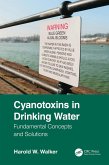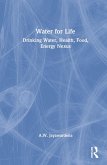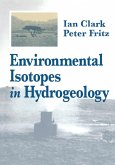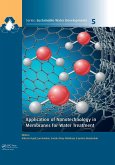Toxic Cyanobacteria in Water (eBook, ePUB)
A Guide to Their Public Health Consequences, Monitoring and Management
Redaktion: Chorus, Ingrid; Welker, Martin
0,00 €
0,00 €
inkl. MwSt.
Sofort per Download lieferbar

0 °P sammeln
0,00 €
Als Download kaufen

0,00 €
inkl. MwSt.
Sofort per Download lieferbar

0 °P sammeln
Jetzt verschenken
Alle Infos zum eBook verschenken
0,00 €
inkl. MwSt.
Sofort per Download lieferbar
Alle Infos zum eBook verschenken

0 °P sammeln
Toxic Cyanobacteria in Water (eBook, ePUB)
A Guide to Their Public Health Consequences, Monitoring and Management
Redaktion: Chorus, Ingrid; Welker, Martin
- Format: ePub
- Merkliste
- Auf die Merkliste
- Bewerten Bewerten
- Teilen
- Produkt teilen
- Produkterinnerung
- Produkterinnerung

Bitte loggen Sie sich zunächst in Ihr Kundenkonto ein oder registrieren Sie sich bei
bücher.de, um das eBook-Abo tolino select nutzen zu können.
Hier können Sie sich einloggen
Hier können Sie sich einloggen
Sie sind bereits eingeloggt. Klicken Sie auf 2. tolino select Abo, um fortzufahren.

Bitte loggen Sie sich zunächst in Ihr Kundenkonto ein oder registrieren Sie sich bei bücher.de, um das eBook-Abo tolino select nutzen zu können.
Protecting drinking, recreational, and other water from toxic cyanobacteria has a major impact on health. This new edition outlines water-related exposure pathways, supports hazard analysis and risk assessment, and outlines strategies for their control and the design and implementation of monitoring programmes.
- Geräte: eReader
- ohne Kopierschutz
- eBook Hilfe
- Größe: 17.54MB
Andere Kunden interessierten sich auch für
![Toxic Cyanobacteria in Water (eBook, PDF) Toxic Cyanobacteria in Water (eBook, PDF)]() Toxic Cyanobacteria in Water (eBook, PDF)0,00 €
Toxic Cyanobacteria in Water (eBook, PDF)0,00 €![Cyanotoxins in Drinking Water (eBook, ePUB) Cyanotoxins in Drinking Water (eBook, ePUB)]() Harold WalkerCyanotoxins in Drinking Water (eBook, ePUB)97,95 €
Harold WalkerCyanotoxins in Drinking Water (eBook, ePUB)97,95 €![Groundwater Hydrology (eBook, ePUB) Groundwater Hydrology (eBook, ePUB)]() Mohammad KaramouzGroundwater Hydrology (eBook, ePUB)162,95 €
Mohammad KaramouzGroundwater Hydrology (eBook, ePUB)162,95 €![Water for Life (eBook, ePUB) Water for Life (eBook, ePUB)]() A. W. JayawardenaWater for Life (eBook, ePUB)46,95 €
A. W. JayawardenaWater for Life (eBook, ePUB)46,95 €![Environmental Microbiology for Engineers (eBook, ePUB) Environmental Microbiology for Engineers (eBook, ePUB)]() Volodymyr IvanovEnvironmental Microbiology for Engineers (eBook, ePUB)48,95 €
Volodymyr IvanovEnvironmental Microbiology for Engineers (eBook, ePUB)48,95 €![Environmental Isotopes in Hydrogeology (eBook, ePUB) Environmental Isotopes in Hydrogeology (eBook, ePUB)]() Ian D. ClarkEnvironmental Isotopes in Hydrogeology (eBook, ePUB)189,95 €
Ian D. ClarkEnvironmental Isotopes in Hydrogeology (eBook, ePUB)189,95 €![Application of Nanotechnology in Membranes for Water Treatment (eBook, ePUB) Application of Nanotechnology in Membranes for Water Treatment (eBook, ePUB)]() Application of Nanotechnology in Membranes for Water Treatment (eBook, ePUB)51,95 €
Application of Nanotechnology in Membranes for Water Treatment (eBook, ePUB)51,95 €-
-
-
Protecting drinking, recreational, and other water from toxic cyanobacteria has a major impact on health. This new edition outlines water-related exposure pathways, supports hazard analysis and risk assessment, and outlines strategies for their control and the design and implementation of monitoring programmes.
Dieser Download kann aus rechtlichen Gründen nur mit Rechnungsadresse in A, B, BG, CY, CZ, D, DK, EW, E, FIN, F, GR, HR, H, IRL, I, LT, L, LR, M, NL, PL, P, R, S, SLO, SK ausgeliefert werden.
Produktdetails
- Produktdetails
- Verlag: Taylor & Francis eBooks
- Seitenzahl: 858
- Erscheinungstermin: 7. März 2021
- Englisch
- ISBN-13: 9781000262049
- Artikelnr.: 60951874
- Verlag: Taylor & Francis eBooks
- Seitenzahl: 858
- Erscheinungstermin: 7. März 2021
- Englisch
- ISBN-13: 9781000262049
- Artikelnr.: 60951874
- Herstellerkennzeichnung Die Herstellerinformationen sind derzeit nicht verfügbar.
Martin Welker started his career as a plankton ecologist at the Institute of Freshwater Ecology, Berlin. His PhD thesis focused on cyanobacteria and their toxins, with a particular emphasis on the release and degradation of microcystins by biotic and abiotic processes. As a post-doc at the Technical University of Berlin and Institute Pasteur, Paris, he explored the diversity of cyanobacterial metabolites and their biosynthesis. In 2006, Martin joined AnagnosTec, contributing to the development of microbial identification systems for clinical diagnostics. In 2010, Martin joined bioMérieux as senior scientist where he works on clinical microbiological diagnostics and research. Ingrid Chorus completed her PhD at the Technical University, Berlin, supporting a collaborative ecosystem study of a highly eutrophic urban lake, and in the 1980's, she studied the restoration of lakes to from heavy eutrophication. In 1991, Ingrid became head of the German Federal Environment Agency's unit on drinking-water resources and began her focus on cyanotoxin research and management. From 2007 until 2018, she led the agency's Department for Drinking-Water and Swimming-Pool Hygiene. A key focus of her work was developing and implementing the WHO Water Safety Plan approach, particularly towards catchment and waterbody management.
1 Introduction 2 Cyanobacterial toxins 3 Introduction to cyanobacteria 4 Understanding the occurrence of cyanobacteria and cyanotoxins 5 Exposure to cyanotoxins: Understanding it and short-term interventions to prevent it 6 Assessing and managing cyanobacterial risks in water-use systems 7 Assessing and controlling the risk of cyanobacterial blooms: Nutrient loads from the catchment 8 Assessing and controlling the risk of cyanobacterial blooms: Waterbody conditions 9 Managing cyanotoxin risks at the drinking-water offtake 10 Controlling cyanotoxin occurrence: Drinking-water treatment 11 Planning monitoring programmes for cyanobacteria and cyanotoxins 12 Fieldwork: Site inspection and sampling 13 Laboratory analyses of cyanobacteria and water chemistry 14 Laboratory analysis of cyanobacterial toxins and bioassays 15 Public health surveillance, public communication and participation
1 Introduction 2 Cyanobacterial toxins 3 Introduction to cyanobacteria 4 Understanding the occurrence of cyanobacteria and cyanotoxins 5 Exposure to cyanotoxins: Understanding it and short-term interventions to prevent it 6 Assessing and managing cyanobacterial risks in water-use systems 7 Assessing and controlling the risk of cyanobacterial blooms: Nutrient loads from the catchment 8 Assessing and controlling the risk of cyanobacterial blooms: Waterbody conditions 9 Managing cyanotoxin risks at the drinking-water offtake 10 Controlling cyanotoxin occurrence: Drinking-water treatment 11 Planning monitoring programmes for cyanobacteria and cyanotoxins 12 Fieldwork: Site inspection and sampling 13 Laboratory analyses of cyanobacteria and water chemistry 14 Laboratory analysis of cyanobacterial toxins and bioassays 15 Public health surveillance, public communication and participation







